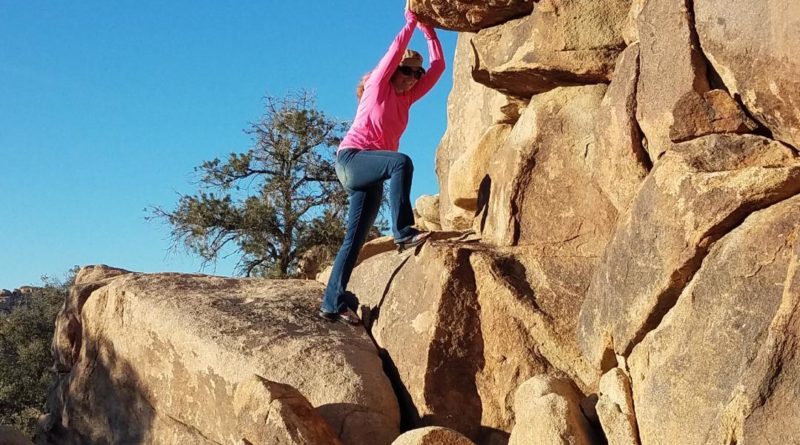Free Range or Chickens?
By Paryn Neer
“Our decisions establish that the Constitution protects the sanctity of the family precisely because the institution of the family is deeply rooted in this Nation’s history and tradition. It is through the family that we inculcate and pass down many of our most cherished values, moral and cultural.”
Justice Lewis F. Powell, Jr. US Supreme Court, Moore v. City of E. Cleveland, 431 U.S. 494 (1977) 503-504
“The assumption that there is only one correct way to parent, and that safety is of such importance that other cultural values must yield to the safety imperative, is a rather offensive form of cultural imperialism.”
Protecting the Free-Range Kid: Recalibrating Parents’ Rights and the Best Interest of the Child, David Pimentel, University of Idaho College of Law, Cardozo Law Review, page 33.
As a parent, one of my most cherished values that I want to show and teach my children is how to know and be themselves anywhere they are or wherever they choose to go in the world. A crucial, foundational pillar that this value stands on (and indeed crumbles without) is that my children must have time to themselves. Alone. If you do not know how to be alone with yourself, then you cannot know who you really are. For a child to have alone time means that the child must be unobserved, unattended. However, parenting in the current culture of fear in which I find myself means that I risk at best admonishment from other people who believe differently than I do and at worst arrest, criminal charges, and having my children taken away from me because I allow them to be alone.
I was recently talking to another preschool mom and we were discussing something about playgrounds or playdates, and she said,
“Well of course my first need is that X feels safe when she is playing.”
“Really?” I answered. “That’s not my focus at all. I would rather that Y feels some danger and excitement when he’s playing so that he learns how to fall and how to pick himself up again.”
As you can imagine, she gave me a blank stare.
I want my children to spend hours playing in the woods by themselves. I want them to meet up with other children who also have this freedom. I am looking for places and countries left in the world where this happens, because it no longer happens in most American neighborhoods. The neighborhoods that still have free-roaming children are few and far between. So even if my children are allowed to play outside, walk around town, they won’t encounter any other children. This is not the culture I want my children to grow up in. I don’t want them to only know an orchestrated life. Early studies of this horrifying turn our culture has taken show that many current college-aged students have led such sheltered, choreographed, observed lives that they feel they must be protected at all times. They have been told since birth that the world is a terribly dangerous place, with horrors lurking everywhere and they must be diligently protected at all times by their care givers. As these children have grown into young adults and they no longer have caregivers, have they shifted to leaning on society to protect them from all of the real and imagined dangers out there? Have we warped these children (some who are now adults) so far into thinking that the world is dangerous that they believe they should be protected from ideas that they find offensive?
If yes, that’s just nuts. And I don’t want to be a part of it. I never want to be protected from an idea, or a word, or even a person, whom I find offensive. I don’t want my kids to be protected from it either, and I certainly don’t want them to think that they should be cushioned and protected from things in the world that are offensive. Yikes! If you feel that you should be protected from an offensive word or idea, then how do you learn to distinguish between something that is offensive vs. something that is threatening?
As a parent of children in this fear-mangled country, one of my personal heroes is Lenore Skenazy. (She’s next to Nelson Mandela in my esteem.) Lenore is the author of Free-Range Kids, which according to her she wrote to fight “the belief that our children are in constant danger from creeps, kidnapping, germs, grades, flashers, frustration, failure, baby snatchers, bugs, bullies, men, sleepovers and/or the perils of a non-organic grape.” She is fantastic. She is brilliant. I love her. She co-founded a non-profit called Let Grow that works to restore some of the independence that we, as parents and as a society, used to give our children. This is from the mission statement page on Let Grow’s website:
“But in fact, treating today’s kids as physically and emotionally fragile is bad for their future, and our country’s. With an unpredictable and rapidly changing economy ahead, kids need to be flexible, creative problem-solvers. They can’t solve their problems if adults are always right there, solving them first!”
Perhaps it comes down to this. What is danger? What is dangerous? The dictionary says that danger is the possibility of suffering harm or injury. Well guess what human parents? That means that danger is essential in order for little humans to become big humans. There can be no proper growth, learning, or development without the possibility of harm or injury to the explorer. Managing danger is a skill that all humans must learn in order to navigate the world. By overprotecting our children, we are directly harming them by not allowing them to develop this skill. The results of this disastrous over-protection trend that has been going on for over two decades now is right in front of us. The proof is in the pudding-children we’ve created.
I want many of the people who are currently standing in the parenting sandbox with me to flip their perspective on what is safe and what is dangerous. I want our culture of fear to flip on its head. I want to re-invent our parenting landscape so that we see non-resilience as extremely dangerous and we see old-school metal jungle gyms as extremely fun.
We are tribal by nature, politics included, and it is very important to me that my children learn and practice the skill of disagreeing with other people without getting angry about it. What’s the link between not letting your toddler drop from the monkey bars and being the parent of a twenty-something who cannot listen to a differing opinion without flying into a rage? I don’t know, but I suspect there is one.
Paryn lives in the Pacific Northwest, surrounded by her husband, children, and a menagerie of animals. When she is not working one of her two full-time jobs, she hides in the bathroom to write.


Paryn……….excellent!!!